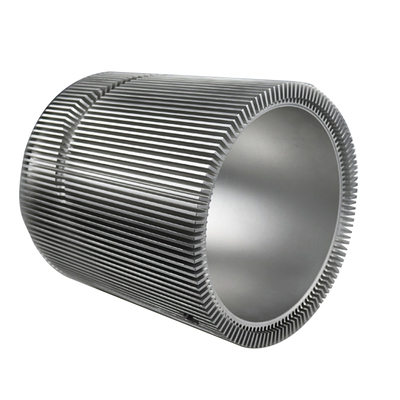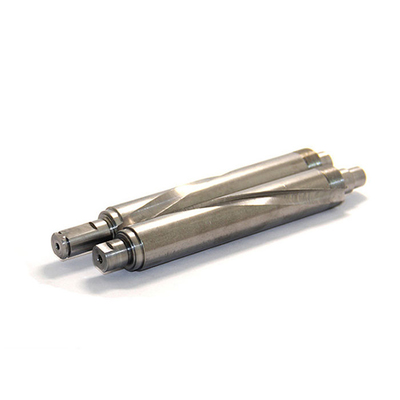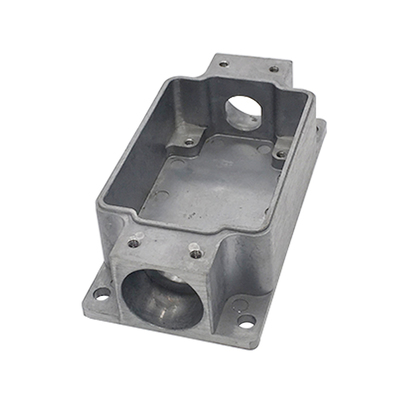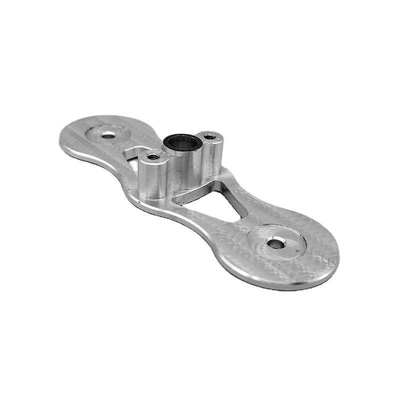What Is Inconel 625
Description Of Inconel 625
|
Inconel625 is a solid solution strengthened nickel-based deformed superalloy with molybdenum and niobium as the main strengthening elements. It has excellent corrosion resistance and oxidation performance. It has good tensile properties and fatigue properties from low temperature to 980 ℃, and is salt-resistant Stress corrosion in a foggy atmosphere. |
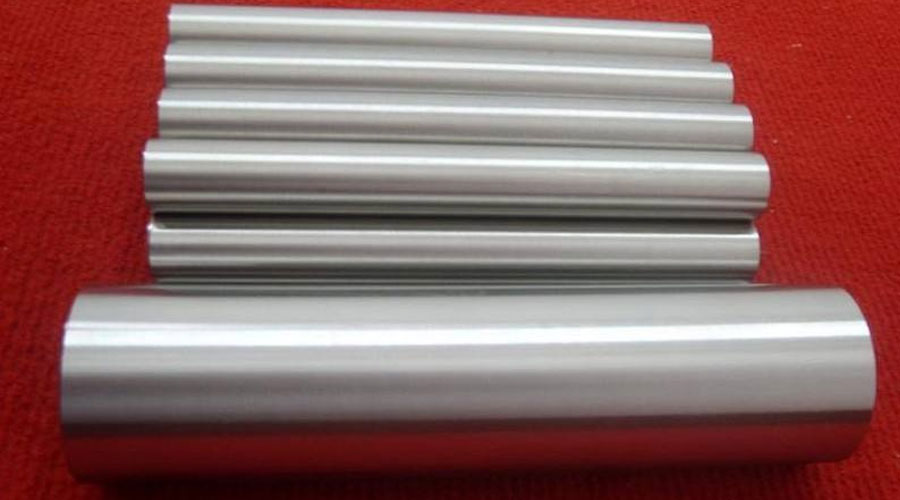
Therefore, it can be widely used to manufacture aero engine parts, aerospace structural parts and chemical equipment. The alloy has good processing and welding performance, and can supply various plates, bars, pipes, wires, strips and forgings.
Alloy 625 is a corrosion-resistant, oxidation-resistant nickel-based alloy. The excellent strength and toughness of 625 alloy in the low temperature-1093 ° C temperature range is derived from the solid solution effect of the refractory metal colium and molybdenum in the nickel-chromium matrix. The excellent fatigue strength and resistance to stress corrosion cracking of 625 alloy benefit from the chloride ion in the material.
Inconel 625 application
625 alloy is mostly used for manufacturing heat shields, turbine engine air ducts, internal combustion tubes, fuel injection rods, chemical industry equipment and special seawater applications.
Inconel 625 Corrosion resistance
625 alloy can withstand a variety of corrosive environments. In alkaline solutions, sea water, fresh water, neutral salts and air, the material has little corrosion. Nickel and chromium components provide antioxidant capacity. Nickel and molybdenum provide resistance to corrosion by non-oxidizing gases. Molybdenum can effectively prevent pitting and crevice corrosion. The resistance to chloride stress corrosion cracking is particularly prominent. At high temperatures, 625 alloy is not prone to flaking or oxidation.
Physical properties
Density: 8.44
Average specific heat: 0.098 btu / lb / ° F
Average thermal expansion coefficient


Inconel 625 Thermal conductivity
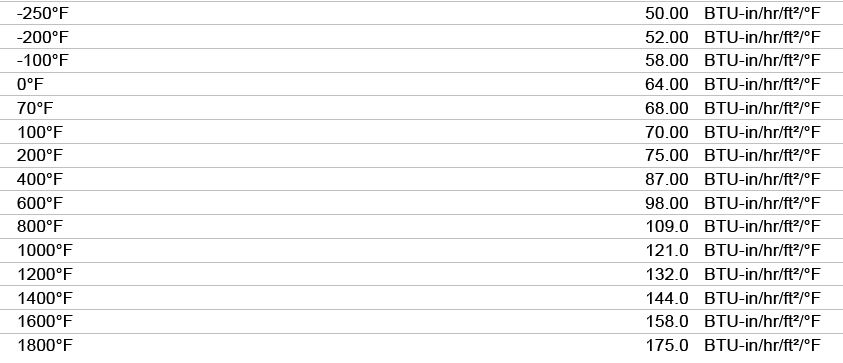
Inconel 625 material is heat treated at 1149 ° C for 1 hour
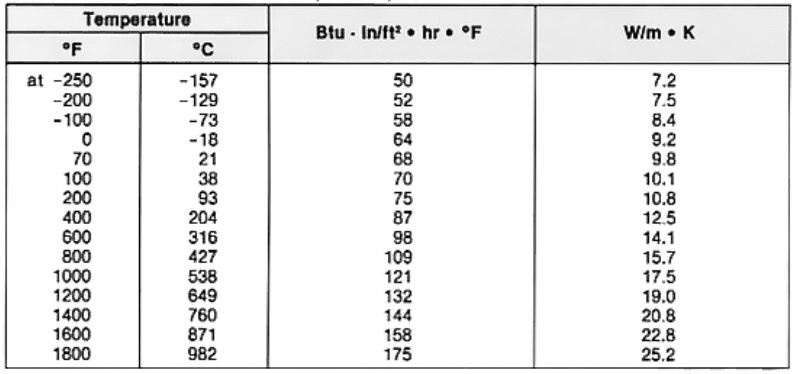
Inconel 625 Poisson's ratio

Modulus of elasticity (E)

Modulus of elasticity (dynamic)

Rigidity modulus (G)

Inconel 625 Resistance

Material heat treated at 1149 ° C for 1 hour
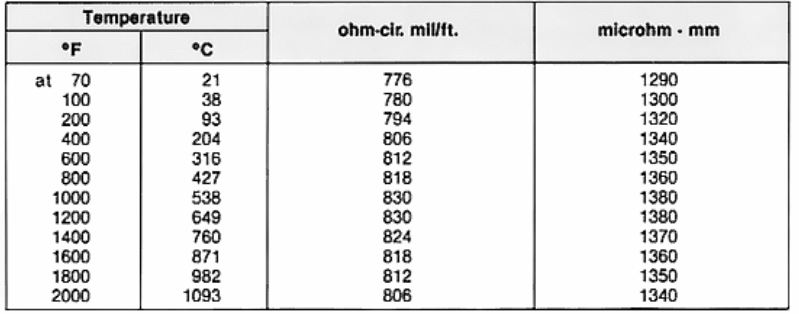
Curie temperature: < -320 ° F
Melting distance: 2350-2460 ° F
Magnetic
Magnetic flux (200 Oe): 1.0006Mu
Inconel 625 Creep performance

Tensile properties at elevated temperature

Effect of annealing temperature
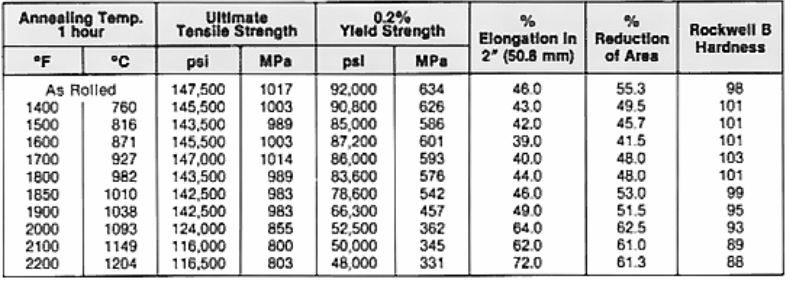
Tensile properties at elevated temperature

Impact test-keyhole notch

Tensile properties at room temperature
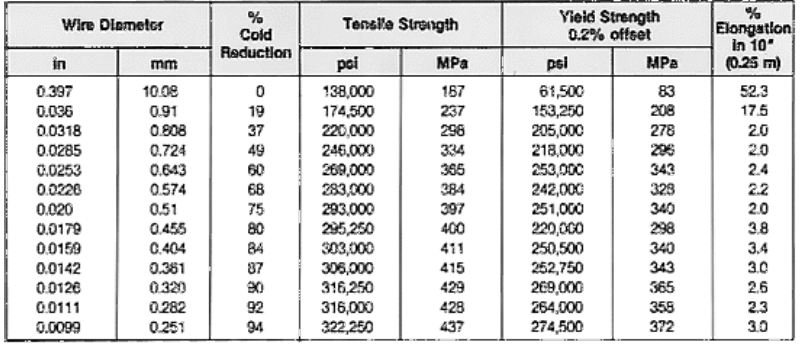
Tensile strength at room temperature
Hot rolling, low solution annealing, 100 hours at the temperature listed in the table below

Rotating beam fatigue strength
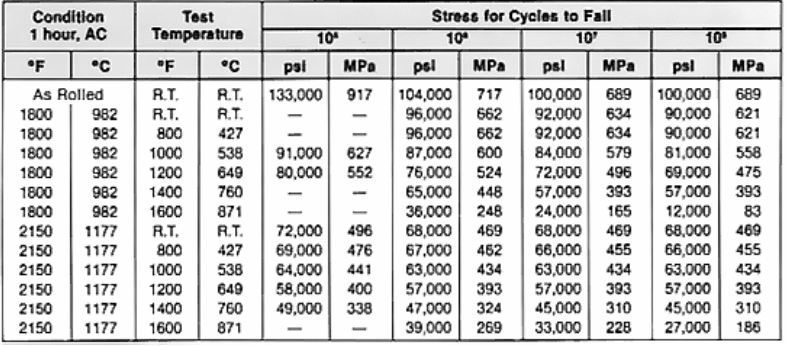
Heat treatment
There are three basic heat treatment methods for 625 alloy:
1. High solution annealing: 1093-1204 ° C, air quenching or faster quenching
2. Low solution annealing: 927-1038 ° C, air quenching or faster quenching
3. Stress relief: 899 ° C, air quenching
The heat treatment time depends on the number of materials and the thickness of the cross section. The heat treatment time of methods 1 and 2 is usually 1 / 2-1 hour, and the heat treatment time of method 3 is 1-4 hours.
When the working temperature is above 816 ° C and the creep resistance is more important, Method 1 is usually used to process the material. Steel mills will also use high solution annealing to make the material soft and easy to cold-roll or cold-draw.
Method 2 is the most commonly used heat treatment method. 1038 ° C can optimize the comprehensive performance of tensile strength and cracking strength. At the same time, the ductility and toughness under low temperature environment are also very good.
When the working temperature is below 649 ° C, when the requirements on the fatigue resistance, tensile strength, yield strength and hardness of the material are high, Method 3 is recommended for heat treatment. The treated material has very good ductility and toughness in low temperature environment. If dense grains are required, the material will have good fatigue strength, tensile strength and yield strength in the environment below 816 ° C. Sometimes method 3 can also be used.
Thermal processing
The maximum furnace temperature for thermal processing is 1149 ° C. Take care to avoid the accumulation of frictional heat that can cause overheating to exceed 1149 ° C. Alloy 625 will become more rigid below 1010 ° C. If it is below this temperature, the workpiece needs to be reheated. It is recommended to perform uniform forging to avoid mixed crystal structure. The finished forging rate is about 15-20%.
Cold Processing
625 alloy is suitable for a variety of standard cold working methods. After cold working, the workpiece becomes rigid and can be restored to its ductility by annealing.
The impact of cold work
Before cold working, the strip is annealed at 1019 ° C
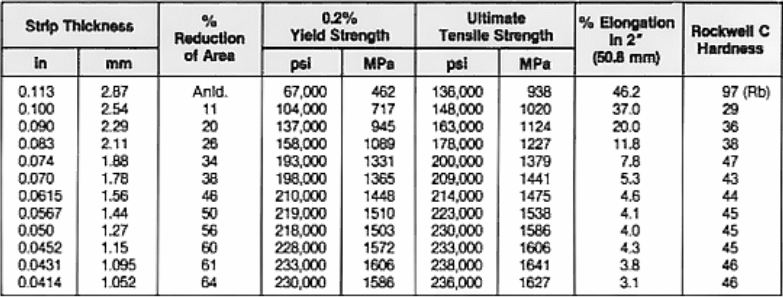
Machine performance
It is generally recommended to use low cutting speed, dense tools, heavy equipment, sufficient coolant, and forced feed to process 625 alloy.
Turning of high-speed cutting tools

The maximum furnace temperature for thermal processing is 1149 ° C. Take care to avoid the accumulation of frictional heat that can cause overheating to exceed 1149 ° C. Alloy 625 will become more rigid below 1010 ° C. If it is below this temperature, the workpiece needs to be reheated. It is recommended to perform uniform forging to avoid mixed crystal structure. The finished forging rate is about 15-20%.
High-speed steel cutting speed

The angle of the carbide tool is smaller than that of the HSS tool, and the cutting speed is faster.
It is recommended to use sulfur-based cutting fluid. After machining, it is necessary to thoroughly clean the workpiece to avoid bringing surface contaminants into the subsequent heat treatment process.
Welding
Gas welding can be used for welding, tungsten electrode or consumable metal electrode. No post-weld heat treatment is required to maintain corrosion resistance. Before welding, pay attention to clean the welding surface and align the welding seam. The thick welding area adopts U-shaped welding method.
Link to this article: What Is Inconel 625
Reprint Statement: If there are no special instructions, all articles on this site are original. Please indicate the source for reprinting:https://www.cncmachiningptj.com/,thanks!
 PTJ CNC shop produces parts with excellent mechanical properties, accuracy and repeatability from metal and plastic. 5 axis CNC milling available.Machining high-temperature alloy range inclouding inconel machining,monel machining,Geek Ascology machining,Carp 49 machining,Hastelloy machining,Nitronic-60 machining,Hymu 80 machining,Tool Steel machining,etc.,. Ideal for aerospace applications.CNC machining produces parts with excellent mechanical properties, accuracy and repeatability from metal and plastic. 3-axis & 5-axis CNC milling available.We will strategize with you to provide the most cost-effective services to help you reach your target,Welcome to Contact us ( sales@pintejin.com ) directly for your new project.
PTJ CNC shop produces parts with excellent mechanical properties, accuracy and repeatability from metal and plastic. 5 axis CNC milling available.Machining high-temperature alloy range inclouding inconel machining,monel machining,Geek Ascology machining,Carp 49 machining,Hastelloy machining,Nitronic-60 machining,Hymu 80 machining,Tool Steel machining,etc.,. Ideal for aerospace applications.CNC machining produces parts with excellent mechanical properties, accuracy and repeatability from metal and plastic. 3-axis & 5-axis CNC milling available.We will strategize with you to provide the most cost-effective services to help you reach your target,Welcome to Contact us ( sales@pintejin.com ) directly for your new project.
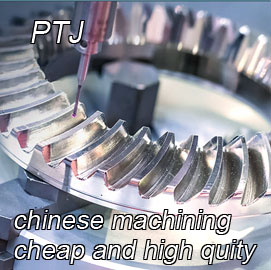
- 5 Axis Machining
- Cnc Milling
- Cnc Turning
- Machining Industries
- Machining Process
- Surface Treatment
- Metal Machining
- Plastic Machining
- Powder Metallurgy Mold
- Die Casting
- Parts Gallery
- Auto Metal Parts
- Machinery Parts
- LED Heatsink
- Building Parts
- Mobile Parts
- Medical Parts
- Electronic Parts
- Tailored Machining
- Bicycle Parts
- Aluminum Machining
- Titanium Machining
- Stainless Steel Machining
- Copper Machining
- Brass Machining
- Super Alloy Machining
- Peek Machining
- UHMW Machining
- Unilate Machining
- PA6 Machining
- PPS Machining
- Teflon Machining
- Inconel Machining
- Tool Steel Machining
- More Material

